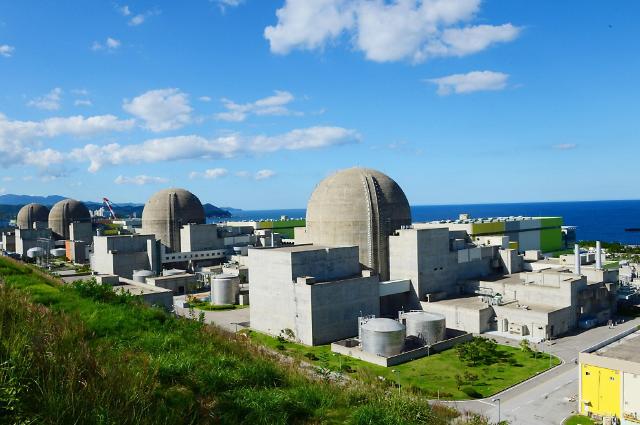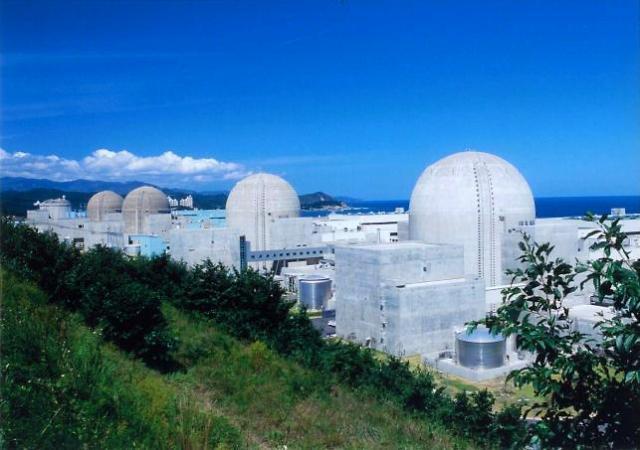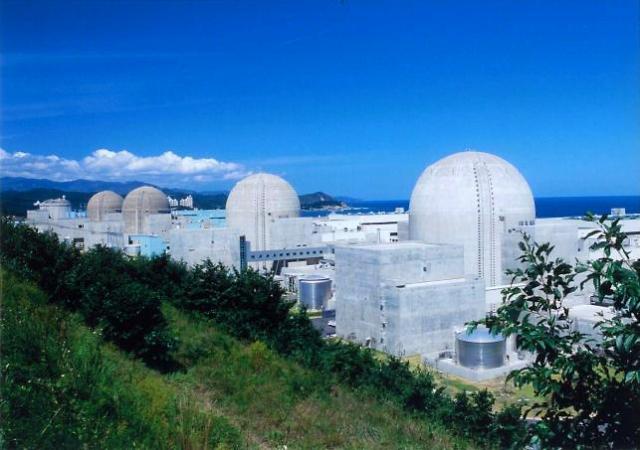
[Courtesy of Korea Hydro & Nuclear Power]
The ministry also plans to raise the share of renewable energy to 21.6 percent by 2030, down 8.6 percentage points from the 30-percent target set by the previous Moon Jae-in administration. The proportion will reach 30.6 percent by 2036, up from 6.2 percent in 2018.
A ministry official said the government has taken a realistic approach toward renewable energy because there still exist difficulties raising the country’s reliance on solar and wind power drastically.
The finalized energy strategy reflects President Yoon Suk-yeol’s campaign promise to scrap his predecessor’s nuclear energy phase-out policy which devastated the domestic atomic power generation industry under Moon’s five-year rule ending last May.
Yoon is seeking to revive the nuclear power sector not only to ensure the stable supply of electricity with less carbon emissions, but also increase exports of reactors as a growth engine.
It appears to be a setback to the country’s efforts to increase the utilization of renewable energy sources such as solar and wind power to reduce carbon emissions sharply under the Moon government’s enhanced nationally determined contributions (NDC).
Under the NDC commitment, South Korea is required to cut down on its carbon emissions by 44.4 percent, or 149.9 million tons, by 2030 from the 2018 levels and achieve a net-zero goal by 2050.
However, the ministry said that the country can meet the NDC target thanks to expanded nuclear power generation, despite its revised plan to curtail the renewable energy dependence target.
The ministry said that the government will continue to operate existing nuclear reactors and build new ones such as Shinhanul 3 and 4 reactors to boost nuclear power generation.
At the same time, the government has decided to reduce its reliance on coal-fired power generation to 19.7 percent by 2030 and 14.4 percent by 2036, down from 41.9 percent in 2018. It plans to convert 28 aged coal power stations to liquefied natural gas (LNG) plants by 2036.




